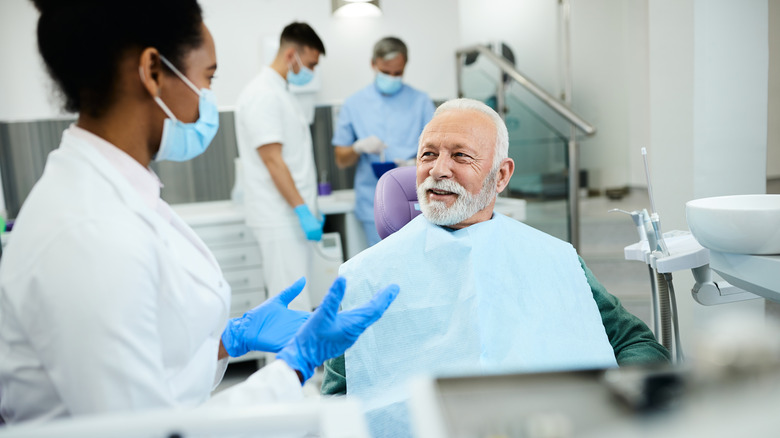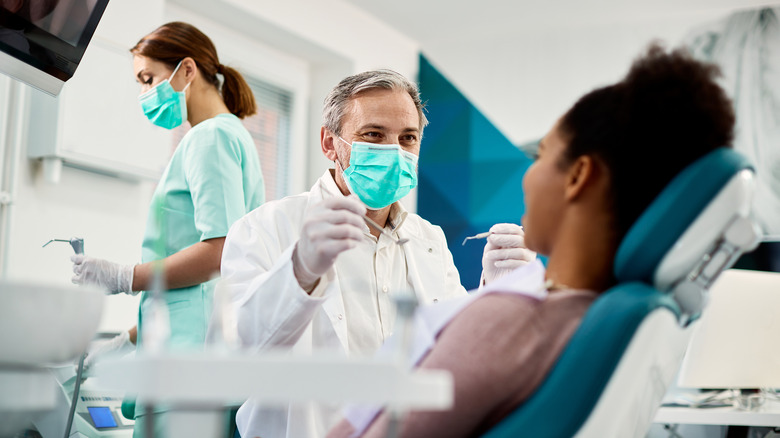Why You Should Tell Your Dentist If You're On Blood Thinners Before A Dental Procedure
People take blood thinners for various reasons. Some examples include preventing or treating heart attacks and strokes and lowering the risk of developing blood clots (via WebMD). If you take blood thinners, it's important to tell your dentist before any dental procedures. This is because certain dental procedures can cause bleeding, and blood thinners make it harder for the body to clot blood (via The American Academy of Oral Medicine). This can lead to excessive bleeding during and after the dental procedure. In some cases, it may even be necessary to adjust the treatment plan or use a different type of anesthesia.
It's important to follow your dentist's instructions to help reduce the risk of complications from your dental procedure. It is also important to be open about your entire medical history prior to a dental procedure. There is a chance you have taken or are taking medication that can negatively interact with the procedure that you may not be aware of, but your dentist will recognize. Do not discontinue any medications prior to a dental procedure before speaking with your doctor, as this can cause serious health issues. If you have any concerns, be sure to discuss them with your dentist beforehand.
How to prepare for a dental procedure
In addition to sharing your medical history with your dentist, there are many ways to prepare for a dental procedure. Depending on the type of procedure you're having, your dentist may give you specific instructions on how to prepare. Don't be afraid to ask questions until you feel comfortable and prepared (via Dentrix Dental Care). If any of your dentist's pre-surgery care tips seem confusing, be sure to follow up so you know you can follow them correctly.
You will also want to make sure you have a ride home. Whether your procedure is being done in the morning or afternoon, you're going to need a ride home afterward. Most dental procedures require the use of anesthesia, which can make it unsafe for you to drive. Arrange for a friend or family member to drive you home after your appointment. Dress comfortably for your appointment as well. You want to be able to relax, and wearing clothes that are too tight or uncomfortable can make it difficult to do so. Finally, try to avoid eating a big meal before your appointment. This is especially important if you're going to be sedated for your procedure. Eating a large meal right before anesthesia can put you at risk for vomiting and aspirating (breathing in) stomach contents. However, the most important thing is to follow your dentist's instructions.


